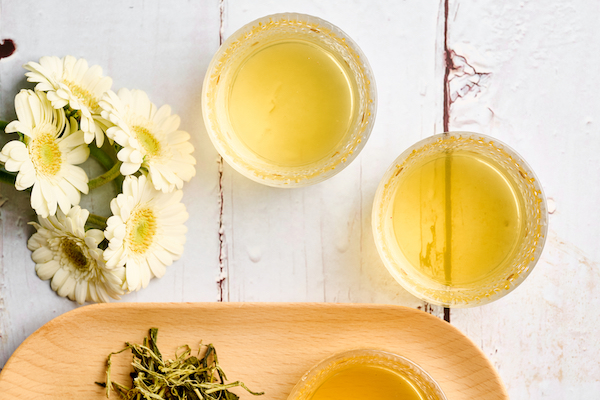Yes, oolong tea does contain caffeine, but the amount varies depending on factors such as the type of oolong, the brewing time, and the specific leaves used. As a partially oxidized tea, oolong sits between green and black teas in terms of caffeine content, making it a popular choice for those seeking a moderate boost without the jitters often associated with coffee.
Understanding oolong tea’s caffeine levels and its effects can help you make informed choices about incorporating this delightful beverage into your daily routine.
Oolong Tea Caffeine Content
The precise caffeine content in oolong tea can vary based on several factors:
Type of Oolong:
Different varieties of oolong may have different caffeine levels. For instance, lightly oxidized oolongs often have slightly less caffeine than heavily oxidized ones.
Brewing Time:
The longer you steep oolong tea, the more caffeine is extracted from the leaves. A typical steeping time is around 3 to 5 minutes, but longer steeping can yield a stronger cup.
Leaf Size:
Whole-leaf teas generally release caffeine more slowly than broken-leaf or dust teas, so the type of leaves can impact the final caffeine content.
For those monitoring their caffeine intake, it’s helpful to note that oolong tea provides a gentler lift compared to coffee, making it an excellent choice for those who are sensitive to caffeine or looking for a moderate stimulant.
Does Oolong Tea Keep You Awake?
Oolong tea can contribute to alertness due to its caffeine content. It contains a unique combination of caffeine and L-theanine, an amino acid that promotes relaxation without drowsiness. This can result in a smoother, more sustained energy boost.
Many people find that drinking oolong tea helps them stay awake without causing the crash that sometimes follows coffee consumption. The calming effects of L-theanine can enhance focus and concentration, making oolong an ideal choice for studying or working.
However, sensitivity to caffeine varies from person to person. Some individuals may find that even the moderate caffeine levels in oolong tea can disrupt their sleep if consumed too close to bedtime. If you're sensitive to caffeine or prone to insomnia, it's advisable to enjoy oolong tea earlier in the day.
In summary, oolong tea does contain caffeine, providing a moderate energy boost while also offering a unique blend of relaxation and alertness. Its mild caffeine content makes it a wonderful option for those looking to enhance their daily focus.
Oolong Caffeine Comparison
On average, an 8-ounce cup of oolong tea contains about 30 to 50 milligrams of caffeine. This range is significantly lower than coffee, which typically has around 95 milligrams per 8-ounce serving, and comparable to green tea, which usually contains about 20 to 45 milligrams.
Here’s a caffeine content chart for Oolong and other beverages.
Caffeine Content (per 8-ounce cup) | |
Oolong tea | 30-50 mg |
Black tea | 47-90 mg |
Green tea | 20-45 mg |
White tea | 6-60 mg |
Coffee | 95 mg |
